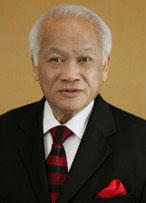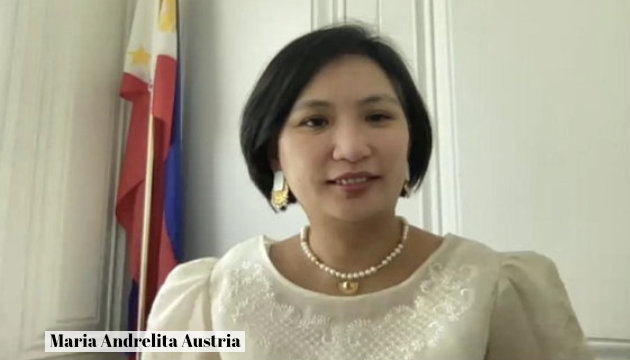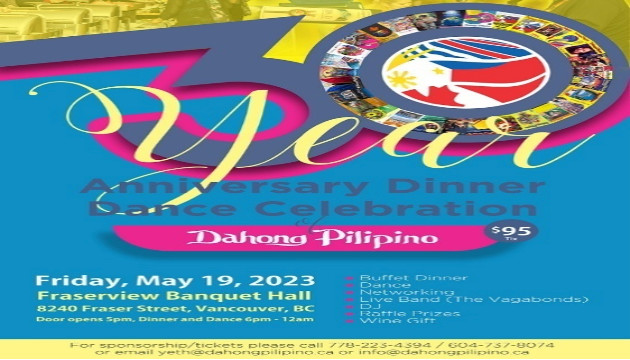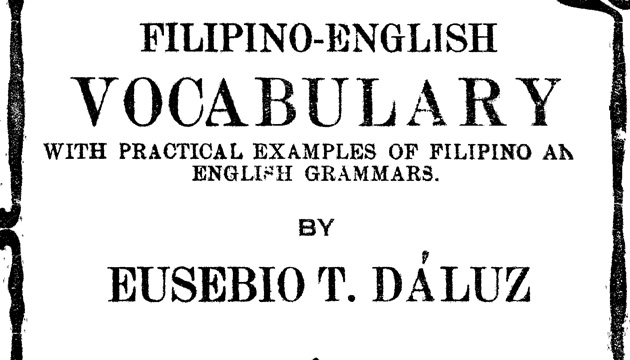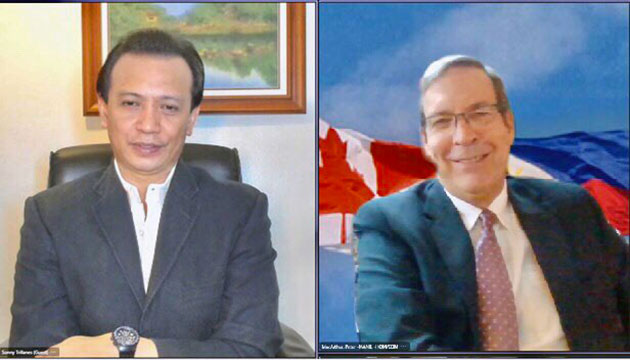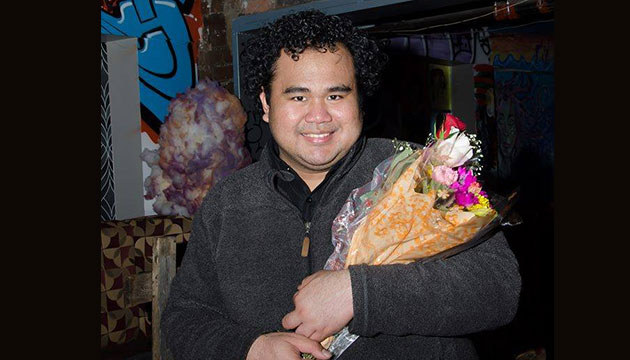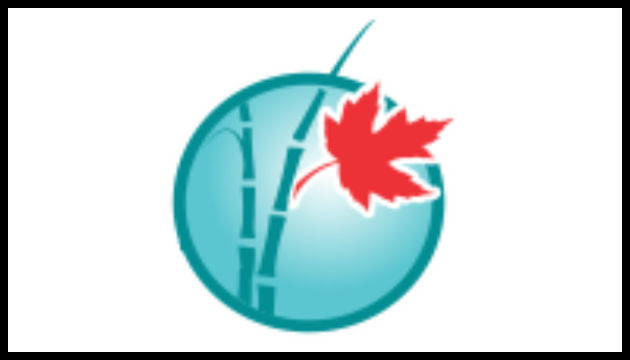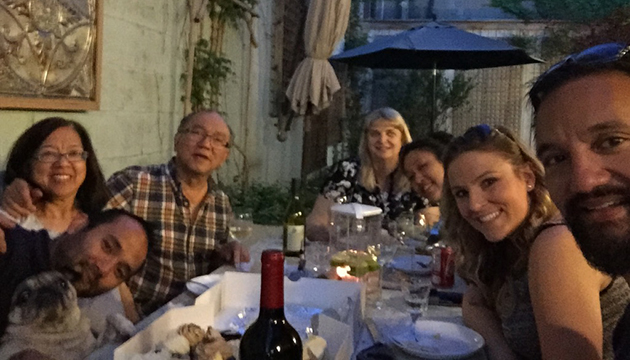On July 1st Canada commemorates the 154th anniversary of Confederation, long before any Filipino landed in the country.
Today, Canadians of Filipino birth or descent constitute almost one million person-strength. As a Canadian Filipino, I ask: Have we as a distinct community of this strength shouldered our duties and responsibilities as Canadians in our common Canada home? Have we challenged the best in us? The opportunities are abundant; the will to act resides in us! As I continue to reflect, I further ask: What does it mean to be Canadian? What does this historic day mean to a Canadian Filipino?
Brief history of Canada Day
July 1st every year since that day in 1867 has been celebrated with national pride as the birth of a new nation. The British Parliament passed the ‘British North America Act, 1867’ (BNA Act, 1867) to establish the union of Nova Scotia, New Brunswick and the Province of Canada (the latter now known as Ontario and Quebec). Called Dominion of Canada, the provinces of Manitoba, British Columbia, Prince Edward Islands, Saskatchewan, Alberta and Newfoundland/Labrador soon followed in that sequence with Manitoba in 1870 and Newfoundland/Labrador in 1949. The Northwest Territories also joined in 1870 followed by Yukon Territory in 1898 and Nunavut in 1999.
It took a century and 15 years before full independence became a reality in 1982. The British Parliament modernized the BNA, 1867; henceforth, it is to be called the Constitution Act, 1867. This new Constitution was patriated to Canada in April 1982 and has two significant features: Canadians would, henceforth, “be able to amend their Constitution in Canada in all respects” and would have the Charter of Rights and Freedoms.
The country celebrated Dominion Day with that name for the last time on July 1, 1982. The national holiday officially changed name to Canada Day on July 1, 1983.
Reflecting on this vignette of history, I see Canada as a nation that has evolved slowly and steadily, is committed to human rights and freedoms, and is “founded upon principles that recognize the supremacy of God and the rule of law” as the preamble to the Charter of Rights and Freedoms reads.
Thus, Canada Day 2021 directly descended from the first Canada Day celebration in 1983.
More than half a century for a Canadian Filipino
I am a Canadian Filipino. I have placed no hyphen between the two nationalities, only a grammatical space because I am a proud Canadian who is equally proud of my Filipino heritage. Even as I fully embrace my Canadian citizenship and proclaim my undivided loyalty to Canada, I continue to cherish the richness of our Filipino heritage and cultural values. We have brought them to Canada – close family ties, respect for elders and authority, deep religious conviction, self-reliance and strong work ethic, that is, hard work, determination, fellowship, cooperation, and passion for learning and excellence. These are the values we keep at whatever work we do.
I should add that in the half-century and three years that have transpired since immigrating to Canada on January 6, 1968, I have lived in Canada for longer than I had in my childhood home in Bacoor, Cavite. I still retain my Filipino accent when I speak, but I have no accent in my heart when I think and act. I feel co-equal with all Canadians, invoking my rights and privileges and doing my civic duties and responsibilities.
Serving as a community volunteer and advocate since setting foot on Canadian soil has been my privilege. Attending to my patients at the Winnipeg Children’s Hospital while teaching aspiring doctors at the University of Manitoba Faculty of Medicine and sharing advances in medicine with peers at medical conferences have been a source of professional fulfillment. Pursuit of public service as a Member of Parliament in the House of Commons, Parliamentary Secretary to the Prime Minister, and cabinet minister in the Government of Canada remain a special dimension of my rich Canadian experience. I saw first-hand how Canada compensated patients with hemophilia (a bleeding disorder) who received AIDS-virus tainted blood, former prisoners of war who were late in claiming benefits, and aboriginal veterans, to cite a few examples.
Prime examples in current times include Canada’s Emergency Response Benefits – the extra children’s allowance, rent subsidy, wage support for unemployment, special grants to students and seniors with disabilities that Trudeau’s Liberal government has provided to Canadians.
Thus, I see Canada as a country that welcomes people from different cultures, cares about them and offers opportunities for personal growth.
Amid discoveries of unmarked children’s graves
The recent discoveries of nearly a thousand unmarked children’s graves at the sites of two former Indian Residential Schools in Saskatchewan and British Columbia are so painful to their bereaved families, the greater aboriginal community, and beyond so much so calls for the cancellation of Canada Day celebrations have emerged. In response, Prime Minister Trudeau pledged the nation on June 25 (Brian Platt. National Post. June 2021): “Canadians today are horrified and ashamed of how our country behaved, about a policy that ripped kids from their homes, from their communities, from their culture and their language…This coming Canada Day, I think we all need to pledge ourselves to doing what we can to continue that effort to make Canada better.”
We join the Prime Minister in his thoughts and pledge. Let us reflect on truth and reconciliation until national healing is achieved.
Amid the COVID-19 pandemic and Filipino Heritage Month celebrations
The cost of the pandemic to lives, livelihoods and economies of nations is unfathomable. Thankfully, Canada is close to winning the pandemic war. In our final march to victory, let us remember the frontline workers in long-term care homes for seniors and in food processing plants. They risked their lives that they may save the lives of others and ensure food supply for all. Most of these workers come from our Canadian Filipino community – a fact not lost to the Prime Minister who said (PM Statement. June 12. Philippine Independence Day 2021):
“Across the country, many members of the Filipino community have taken on essential roles in the fight against the global COVID‑19 pandemic. Some have been on the front lines, keeping Canadians safe and healthy, and caring for our most vulnerable. I thank them for their courage and sacrifices during these difficult times. You have shown us the best of what it means to serve your community.”
Indeed, their dedication reflects our people’s respect for the elders and passion for hard work and determination. The Filipino Canadian National Congress did just that – paid a nationwide tribute to them on Day One of the Filipino Heritage Month celebrations.
Knowing our rights and freedoms
Canada’s Charter of Rights and Freedoms is a testament to human dignity. How conscious are we of its many gems? Knowing our fundamental rights and freedoms assures us, citizens or permanent residents, of our rights and responsibilities. Let us revisit the list: freedom of conscience and religion; freedom of thought, belief, opinion and expression, including freedom of the press and other forms of media communication; freedom of peaceful assembly and freedom of association; right to live and seek employment anywhere in Canada; rights to life, liberty and personal security; equality rights; official languages and minority language education rights; preservation and enhancement of Canada’s multicultural heritage; and Indigenous peoples’ rights.
The rights and freedoms in the Charter are not absolute. Section 1 of the Charter says that Charter rights can be limited by law so long as those limits can be shown to be reasonable in a free and democratic society. Restrictions to some freedoms as a result of directives from governments and public health authorities would fall under this Section.
Changing challenges into opportunities
- Seizing the opportunity to serve: The pandemic crisis has highlighted the valuable contributions of many Canadian Filipinos in this critical time because they are highly represented in the essential areas of healthcare and the service industry, making them frontline workers who have risked their own lives to attend and deliver care at long term care homes and do their duties at food industries even at trying circumstances when protective equipment and supplies were scarce and workplace settings favored transmission of the COVID virus. Canadian Filipinos demonstrated they are capable of making Canada a safe and better place with their competence, talents, skills, compassion and hard work. It has also proven that they are fully committed Canadians ready to risk their lives for the good of all. We thank the Prime Minister for gratefully acknowledging “their courage and sacrifices during these difficult times.”
- Engaging in advocacy and using social media: Make the Canadian government and society accept these workers and give them a path to immigration and citizenship.Their whole family and future generations are here to stay. They came to seek a better life. Canada, I am sure, would not wish them to become a permanent underclass in the prosperous Canada they have been helping to build. Need we remind the federal government that for over 50 years Canada has benefitted, through its immigration programs, from the inexpensive but quality labour of Filipino caregivers and temporary workers? Must it be that their dire conditions and hope for a better future for their children are not enough sufferings and longings? It’s time and proper for a just and caring Canada to be reciprocally generous.
Advocate for gender equality. Speak up against injustice and racism. Write blogs, use Facebook, Instagram and Twitter to connect and get supporters to join a cause. How about starting a #MeToo Movement to make the world a better place?
- Seizing educational, training and geographic opportunities: Get into occupations commensurate to ones’ educational and professional backgrounds obtained in the old country. Obtain additional training or new credentials for which there is demand. Consider small business ventures - for example, landscaping, yard and gardening business, transport of seniors and people with disabilities, community radio host. Explore opportunities offered by vocational, technical and community colleges and schools. Prepare for re-certification and credentialing.
Interest your friends to interest community leaders about your aspirations; they are waiting for your invitations to engage them.
Now is the time to start the changeover on how Canadian Filipinos are perceived and treated in Canada. But we must do it ourselves, together, if need be, as a group. We must buckle down, take the bull by the horns and give it all we have got. Consider the rural areas and towns of Canada. Learn of their particular needs and required services.
- Community volunteerism, and giving back: With our multicultural talents and skills such as a gift of gab and persuasion, we can create new jobs and enhance collective Filipino heritage. Many Filipino restaurants have offered free meals to those in need, businesses making free personal protective equipment for frontline workers, and Filipinos laid off by Covid-19 volunteering as drivers/service providers for charitable institutions like Food Banks and making themselves useful in true Filipino bayanihan fashion – explore the feasibility of continuing with these activities.
Canadian Filipinos know that being Canadian means helping to make Canada a just and caring society, a country where democracy and social justice are the norm and practice, where fairness and the rule of law prevail. Canada’s Emergency Response Benefits are prime examples in current times. Can we take just pride as individuals and as a community residing in the second-best country in the world in which to live? Yes we can. To help build the country with fellow Canadians, Filipinos are gladly paying back whenever they can.
These areas I see my Canada Day 2021. These are my reflections of Canada as a Canadian Filipino.



